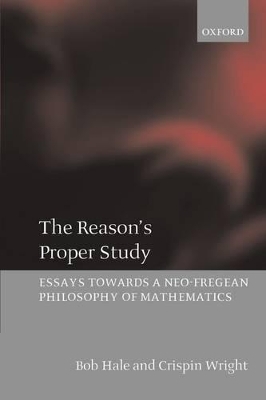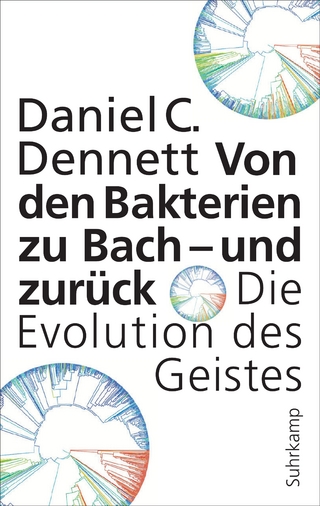
The Reason's Proper Study
Essays towards a Neo-Fregean Philosophy of Mathematics
Seiten
2003
Oxford University Press (Verlag)
978-0-19-926632-6 (ISBN)
Oxford University Press (Verlag)
978-0-19-926632-6 (ISBN)
Addresses fundamental questions: What is mathematics about, and, How do we know it? This work features introduction, postscript, bibliographies, and an essay on a key problem. It offers a presentation of the controversial neo-Fregean view that mathematical knowledge may be based a priori on logic and definitional abstraction principles.
Bob Hale and Crispin Wright draw together here the key writings in which they have worked out their distinctive neo-Fregean approach to the philosophy of mathematics. The two main components in Frege's mathematical philosophy were his platonism and his logicism -- the claims, respectively, that mathematics is a body of knowledge about independently existing objects, and that this knowledge may be acquired on the basis of general logical laws and suitable definitions. The central thesis of this collection is that Frege was -- his own eventual recantation notwithstanding -- substantially right in both claims. Where neo-Fregeanism principally differs from Frege is in taking a more optimistic view of the kind of contextual explanation (proceeding via what are now commonly called abstraction principles) of the fundamental concepts of arithmetic and analysis which Frege considered and rejected. On this basis, neo-Fregeanism promises defensible and attractive answers to some of the most important ontological and epistemological questions in the philosophy of mathematics.
In addition to fourteen previously published papers, the volume features a new paper on the Julius Caesar problem; a substantial new introduction mapping out the programme and the contributions made to it by the various papers; a postscript explaining which issues most require further attention; and bibliographies both of references and of further useful sources. The Reason's Proper Study will be recognized as the most powerful presentation yet of the neo-Fregean programme; it will prove indispensable reading not just to philosophers of mathematics but to all who are interested in the fundamental metaphysical and epistemological issues on which the programme impinges.
Bob Hale and Crispin Wright draw together here the key writings in which they have worked out their distinctive neo-Fregean approach to the philosophy of mathematics. The two main components in Frege's mathematical philosophy were his platonism and his logicism -- the claims, respectively, that mathematics is a body of knowledge about independently existing objects, and that this knowledge may be acquired on the basis of general logical laws and suitable definitions. The central thesis of this collection is that Frege was -- his own eventual recantation notwithstanding -- substantially right in both claims. Where neo-Fregeanism principally differs from Frege is in taking a more optimistic view of the kind of contextual explanation (proceeding via what are now commonly called abstraction principles) of the fundamental concepts of arithmetic and analysis which Frege considered and rejected. On this basis, neo-Fregeanism promises defensible and attractive answers to some of the most important ontological and epistemological questions in the philosophy of mathematics.
In addition to fourteen previously published papers, the volume features a new paper on the Julius Caesar problem; a substantial new introduction mapping out the programme and the contributions made to it by the various papers; a postscript explaining which issues most require further attention; and bibliographies both of references and of further useful sources. The Reason's Proper Study will be recognized as the most powerful presentation yet of the neo-Fregean programme; it will prove indispensable reading not just to philosophers of mathematics but to all who are interested in the fundamental metaphysical and epistemological issues on which the programme impinges.
Bob Hale is Professor of Metaphysical Philosophy at the University of Glasgow. Crispin Wright is Professor of Logic and Metaphysics, and Wardlaw Professor, at the University of St Andrews.
I. ONTOLOGY AND ABSTRACTION PRINCIPLES ; II. RESPONSES TO CRITICS ; III. HUME'S PRINCIPLE ; IV. ON THE DIFFERENTIATION OF ABSTRACTA ; V. BEYOND NUMBER-THEORY
| Erscheint lt. Verlag | 1.12.2003 |
|---|---|
| Verlagsort | Oxford |
| Sprache | englisch |
| Maße | 157 x 233 mm |
| Gewicht | 673 g |
| Themenwelt | Geisteswissenschaften ► Philosophie ► Erkenntnistheorie / Wissenschaftstheorie |
| Geisteswissenschaften ► Philosophie ► Metaphysik / Ontologie | |
| Mathematik / Informatik ► Mathematik ► Logik / Mengenlehre | |
| ISBN-10 | 0-19-926632-8 / 0199266328 |
| ISBN-13 | 978-0-19-926632-6 / 9780199266326 |
| Zustand | Neuware |
| Informationen gemäß Produktsicherheitsverordnung (GPSR) | |
| Haben Sie eine Frage zum Produkt? |
Mehr entdecken
aus dem Bereich
aus dem Bereich
die Grundlegung der modernen Philosophie
Buch | Softcover (2023)
C.H.Beck (Verlag)
18,00 €
die Evolution des Geistes
Buch | Softcover (2025)
Suhrkamp (Verlag)
30,00 €


